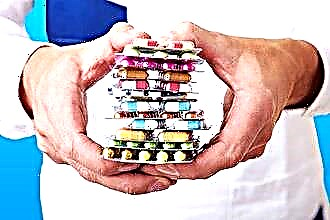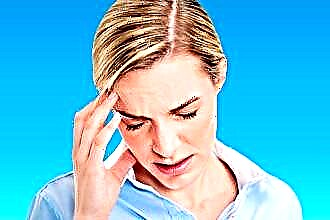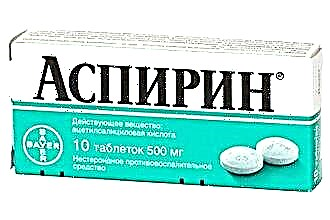Instructions for use
 Cardiomagnyl is a combined preparation containing acetylsalicylic acid and magnesium hydroxide.
Cardiomagnyl is a combined preparation containing acetylsalicylic acid and magnesium hydroxide.
This combination is designed to protect the mucous membrane of the gastrointestinal tract from the ulcerogenic effects of ASA and reduce the incidence of dyspeptic disorders. Magnesium hydroxide is a non-absorbable antacid that adsorbs hydrochloric acid on itself, reduces its proteolytic activity and, enveloping the mucous membrane, protects the stomach from the "aggression" of aspirin. Also, magnesium hydroxide is able to increase the concentration of NO in the walls of the stomach, which is a powerful vasodilator (dilates blood vessels), thereby increasing microcirculation and stimulating the regenerative processes of the epithelial lining of the stomach.
ASA belongs to the group of non-steroidal anti-inflammatory drugs that are used in the treatment of pain in arthrosis, headache, rheumatological diseases, to reduce the degree of fever and many other inflammatory processes.
When the endothelium of the vascular wall is damaged by an atherosclerotic process, the rheological properties of the blood are disturbed, a thrombus is formed and a dangerous narrowing of the lumen of the vessel or its occlusion occurs.
During the formation of a blood clot, a platelet goes through several stages:
- Activations - contact of a platelet with exposed collagen of the vascular wall, thromboxane A2 and metabolic products of arachidonic acid;
- Secretion (release of biologically active substances);
- Aggregation - gluing platelets together and the formation of circulating conglomerates in the blood plasma;
- Adhesion - adhesion of a blood clot to the damaged area of the vessel.
Therefore, platelet activation is a key link in the development of cardiovascular complications.
The mechanism of the antiplatelet action of ASA (blood thinning) is the ability to selectively (selectively) and irreversibly modify the enzyme cyclooxygenase (COX).
This constituent of the cell membrane is responsible for the synthesis of prostadinoids (including thromboxane). COX catalyze the conversion of arachidonic acid to prostaglandin H2 (a precursor of prostacyclin and thromboxane A2).
 Thromboxane A2 causes a number of effects:
Thromboxane A2 causes a number of effects:
- vasoconstriction;
- aggregation (gluing) of platelets;
- increased blood pressure;
- coagulation disorders (blood clotting).
Acetylsalicylic acid blocks the synthesis of thromboxane A2 for the entire life of the lamellar blood cell (7-10 days).
Additional mechanisms of action of ASA:
- It releases plasminogen activators (a disintegrant of fibrin fibers - the framework of a blood clot), activating the process of fibrinolysis (thrombus lysis).
- Reduces the production of fibrin by reducing the activity of thrombin and fibrinogen.
- Blocks the synthesis of prostacyclins by reducing the platelet aggregation ability.
When taken orally, Cardiomagnet is rapidly absorbed in the stomach, bioavailability reaches 70%. The rate of absorption is affected by the acidity of gastric juice; with a decrease in the concentration of hydrochloric acid, the rate of absorption increases (this also happens in patients who take sorbents or antacids).
The maximum concentration in the blood of ASA reaches after 1-2 hours. The drug has a high degree of binding to blood plasma proteins (80-90%), which ensures the rapid distribution of the active substance in all tissues and biological fluids of the body, penetrates into breast milk and through the placenta.
ASA metabolism occurs in the liver with the formation of salicylic acid (20 minutes after taking the pill). Therefore, the rate of its elimination from the body will increase in proportion to the dose taken. For Cardiomagnyl, it is 2-4 hours. A small proportion of the substance in unchanged form is eliminated by the kidneys (the volume of excretion depends on the acidity of the urine - the lower the pH, the lower the percentage).
Indications: what does the remedy help from and why drink it?
Cardiomagnet has a low dosage of acetylsalicylic acid and is not intended for use to relieve pain or fever.
Indications for use of Cardiomagnyl:
 Cardiac ischemia;
Cardiac ischemia;- Acute coronary syndrome:
- Unstable angina;
- Myocardial infarction;
- Secondary prevention of thrombus formation;
- Primary prevention of thrombosis and cardiovascular accidents in patients over 50, with additional risk factors:
- Arterial hypertension;
- Hypercholesteremia, atherosclerosis;
- Type II diabetes mellitus;
- Obesity, metabolic syndrome;
- Complicated family history of cardiovascular accidents.
The drug is also indicated for:
- reducing the risk of transient ischemic attacks and stroke;
- prevention of thrombosis and embolism after vascular surgery (percutaneous angioplasty, stenting, endarterectomy, coronary arteries or arteriovenous bypass grafting);
- prevention of deep vein thrombosis of the lower extremities and pulmonary embolism due to prolonged immobilization (after surgery).
In obstetrics, Cardiomagnyl can be used in women with pregnancy complicated by preeclampsia, gestational hypertension and atrial fibrillation to prevent the thrombotic process and improve microcirculation in the placenta.
Composition and form of release
The composition of Cardiomagnyl contains two active ingredients: acetylsalicylic acid and magnesium hydroxide.
The drug is available in the form of white tablets, film-coated in a dosage of 75 mg (heart-shaped) and 150 mg (oval with a line in the middle, which allows it to be divided in half) in a package of 30 or 100 tablets.
How and when to take?
The tablet can be taken whole, chewed or dissolved in water to accelerate the action of ASA. If necessary, you can drink it. The best time to use is before bed.
 Doses of Cardiomagnyl for various conditions:
Doses of Cardiomagnyl for various conditions:
- Ischemic heart disease, prevention of re-thrombosis - saturation period - 150 mg / day, maintenance dose 75 mg.
- ACS (acute coronary syndrome) - as soon as possible after the onset of an anginal attack, chew 150-450 mg at a time;
- Prevention of secondary thromboembolic complications in the postoperative period 150 mg / day;
- For patients at risk or burdened with anamnesis, it is recommended to take 75 mg / day. (With advanced atherosclerosis, therapy with Cardiomagnum is combined with taking statins on an ongoing basis).
Does the drug lower blood pressure?
Cardiomagnet is not able to directly lower blood pressure and is not used for this purpose. The drug can indirectly improve the course of arterial hypertension and reduce the risk of complications due to its effect on rheological parameters and optimization of blood circulation in internal organs, which reduces chronic tissue hypoxia and oxidative stress.
The appointment of Cardiomagnyl to patients with arterial hypertension is motivated by the prevention of the development of life-threatening complications.
How long to use Cardiomagnet and at what age?
In fact, the use of Cardiomagnyl for patients with cardiovascular diseases is lifelong, since the risk of developing thrombotic complications only increases with age.
Patients at risk (suffering from diabetes mellitus, hypertension, obesity, metabolic syndrome, atherosclerosis and with a problematic family history of myocardial infarction under the age of 55) are recommended to start primary prevention of cardivascular pathology after 50 years.
Treatment with Cardiomagnum for patients with varicose veins, thrombophlebitis or in the postoperative period is prescribed until clinical remission or stabilization of laboratory hemostasis parameters.
In pregnant women with late gestosis, the duration of therapy is determined individually. There are only 2 general principles:
- Start taking ASA no earlier than 12 weeks of pregnancy (minimal risk of consequences of taking salicylates for the fetus);
- The last dose should be taken 2 weeks before the expected delivery.
Side effects and contraindications
Contraindications to therapy with Cardiomagnum:
 Hypersensitivity, intolerance or allergy to salicylates or other components of the drug;
Hypersensitivity, intolerance or allergy to salicylates or other components of the drug;- Aspirin asthma;
- Stomach ulcer during an exacerbation, erosive gastritis;
- Hemorrhagic diathesis, blood clotting disorders;
- Severe hepatic or renal failure;
- Class III-IV chronic heart failure;
- Use with caution in patients with gout and uncontrolled bronchial asthma;
- ARVI in children and adolescents (under 18 years of age) due to the risk of Reye's syndrome (a life-threatening condition that requires urgent intensive care);
- First trimester of pregnancy.
Also, Cardiomagnet cannot be used simultaneously with:
- Methotrexate (a drug for the cytostatic therapy of many diseases). Its competitive interaction with ASA for plasma proteins slows down the excretion of the substance by the kidneys, after which the toxicity of methotrexate increases.
- Clopilogrel, Ticlopidine (mutually enhance antiplatelet effects);
- Direct anticoagulants (Heparin, Warfarin) (decrease in thrombin production, increased risk of bleeding).
- Other NSAIDs (increased ulcerogenic effect on the mucous membrane of the gastrointestinal tract).
- Ibuprofen (the drug reduces the effects of ASA).
- Furosemide, Spironolactone (reducing the diuretic effect). It is recommended to maintain an interval between preparations of 4-6 hours.
- Sugar-lowering drugs (potentiate the development of hypoglycemia).
- Digoxin (an increase in the concentration of the latter in the blood, the risk of glycosidic intoxication).
- Antacids (reduces the effect of salicylates).
- Alcohol (synergistic with ASA - damages the mucous membrane, prolongs bleeding time).
In patients with glucose-6-phosphate dehydrogenase deficiency, the use of ASA can cause hemolytic anemia.
High doses of ASA (more than 100 mg / day) are strictly prohibited to be taken during pregnancy. since there is a high probability of impaired embryonic and intrauterine development, the occurrence of hemorrhagic complications in childbirth and the early postpartum period, as well as the mental health of the child.
In Cardiomagnum, the concentration of acetylsalicylic acid is low, so side effects are rare and have a mild course.
 The benefits of the constant use of Cardiomagnyl disproportionately exceed the possible risk of harmful effects of ASA on the stomach.
The benefits of the constant use of Cardiomagnyl disproportionately exceed the possible risk of harmful effects of ASA on the stomach.
Possible undesirable effects of taking Cardiomagnyl:
- Disorders of the gastrointestinal tract - dyspepsia, epigastric pain, rarely inflammatory changes in the gastric mucosa, erosion;
- The risk of lengthening the bleeding time, hemorrhagic manifestations (hematomas, epistaxis and bleeding from the gums);
- Rarely - the development of posthemorrhagic or iron deficiency anemia (subject to prolonged latent blood loss);
- Allergic manifestations - skin rash, itching, rhinitis, nasal congestion, sometimes - asthmatic condition, dry cough, bronchospasm;
- Transient liver dysfunction (with an increase in transaminase activity).
If the dose of 300 mg / kg / day is exceeded, symptoms of an overdose of ASA develop:
- vertigo, headache;
- hearing impairment, noise and ringing in the ears;
- increased sweating, fever;
- violation of consciousness;
- nausea;
- hypotension, tachycardia;
- in clinical analyzes - metabolic acidosis, electrolyte imbalance, hypoglycemia, coagulopathy.
Instructions for the use of Cardiomagnyl contain comprehensive information regarding its interaction and compatibility with other drugs.
Analogs and manufacturers: cheap Russian substitutes
The original drug is produced by the Austrian pharmaceutical company Takeda or a subsidiary in Denmark Nycomed. On the Russian pharmaceutical market, not a single generic drug (having an identical composition) of Cardiomagnyl is presented.
Analogs of the drug (medicines in which ASA is present in a dosage of 75-100 mg:
 Acecardol (Russia);
Acecardol (Russia);- Akard, Polokard (Poland);
- Anopyrin (Slovenia);
- Aspirin Cardio, Godasal (Germany together with Switzerland);
- Reocard, Therapine (USA);
- Thrombo ASS (Austria);
- Thrombocardium (Bulgaria).
The cheapest analogue of Cardiomagnyl in Russia is ordinary Acetylsalicylic acid. But it is worth remembering that the active substance in it is not protected by an enteric coating or the addition of magnesium hydroxide. Therefore, the likelihood of developing complications from the gastrointestinal tract is extremely high.
There are also substitutes for Cardiomagnyl (drugs with similar indications for use:
- Clopidogrel, Aviks, Agrel, Zilt, Clodia, Lopirel, Plavix;
- Ticlopidine, Tiklid;
- Aspinrell, Coplavix (combination of ASA and Clopidogrel);
- Tricagelor;
- Dipyridamole, Curantil.
Their difference from Cardiomagnyl is that they have different ingredients and active substances. In no case can you independently replace the Cardiomagnet prescribed by your doctor with its counterparts with another active substance, since they have a different mechanism of action and contraindications.
Conclusions
Prevention of thrombotic complications in patients with cardiovascular pathology remains an urgent issue in modern pharmacy. Cardiomagnyl is a first-line drug that maintains leadership positions in all protocols for the management of coronary artery disease, myocardial infarction, ischemic stroke and advanced atherosclerosis with IA evidence level.
In elderly patients, it is more economically profitable to use the combined preparations of acetylsalicylic acid with antacids (Cardiomagnyl), since the incidence of gastropathy and the total cost of drug therapy are reduced.
Before using the drug, it is imperative to consult a doctor and read its description.

 Cardiac ischemia;
Cardiac ischemia; Hypersensitivity, intolerance or allergy to salicylates or other components of the drug;
Hypersensitivity, intolerance or allergy to salicylates or other components of the drug; Acecardol (Russia);
Acecardol (Russia);

